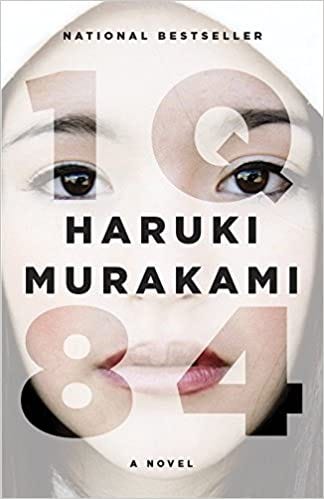Hey Everyone,
Happy New Year, and welcome back to The Chomp—your weekly dose of the best strategic thinking content and top emerging business trends from the internet and beyond.
If you’ve been sent this email and you’re not a subscriber, you can subscribe by clicking on the blue button below.
With that, let’s dive into it.
Quick Bite
My Five Favorite Books of 2020
I spent a fair amount of time reading books in 2020, and I hope to spend as much time—if not more—doing the same in 2021. Of all the books I read throughout the year, below are my five favorites spanning all genres and categories. Included are my thoughts on why they landed in the top five, as well as the brief reviews that I shared for each of them throughout the year on this newsletter. You can find a full list of everything I read in 2020 here.
The Power Broker - Robert Caro: To me, 2020 personified everything that New York City stands for. Both the good and the bad. Togetherness. Stubbornness. And above all else, resilience. In a year where NYC took center stage more than once, I found it fitting to have started the year by reading what I now believe to be the quintessential book about NYC. As 2020 revealed many of the true qualities of NYC, so does The Power Broker. To fully understand, and appreciate, NYC, one must live here for some period of time—there’s really no other way about it. This is true for most cities, yet none more so than New York. You need to live it to feel it and believe it. Any New Yorker will tell you the same thing. Yet, to understand how this city came to be what it now is, there’s a cheat code. And that’s reading The Power Broker.
As I’ll tell anyone who asks me, Robert Caro is the best biographer ever. Period. Words can’t do justice in describing the unique ability he has to chronicle the lives of the subjects he’s written about. I learned more about New York and how it became the city it is today through this book than by living here for the past six years and spending my entire life around it combined. Robert Moses had an unfathomable impact on shaping modern-day New York, and this book succeeds beyond any expectation that can be set in telling his story. (5/5)
Zen and the Art of Motorcycle Maintenance: An Inquiry Into Values - Robert Pirsig: It wasn’t until after I finished reading this book and started to look back on my notes that I realized how powerful it really is. Zen and the Art of Motorcycle Maintenance isn’t the easiest read, but it’s one of the most rewarding. Had I not also read The Power Broker this year, this would have easily captured my number one spot.
This book is a gold mine of philosophical quips and metaphors, but it’s not always easy to get through. You need to really be focusing to extract the full value of the ideas that Pirsig presents, and if you’re even the slightest bit distracted you’ll find yourself constantly having to go back and reread what you just read. Even when you are fully focused, it’s still helpful to reread much of his writing to ensure you’re capturing the full breadth of his thoughts. That being said, this one is a modern-day classic for a reason and it’s well deserving of that status. (4.5/5)
The Lessons of History - Will Durant: This was the shortest book I read this year, yet it packed the biggest punch. The fact that this book covers 5,000 years of history (adequately) in 128 pages still astonishes me every time I think about it. The more I reflect on my notes and highlights from this book, the more valuable I realize it is.
The Lessons of History is nothing short of a masterpiece. Will & Ariel Durant’s achievement of distilling the most important lessons of over 5,000 years of history into 128 pages is truly remarkable. There are very few books I’ve read that offer as many interesting takeaways on a per-page basis. This is a book that I’ll repeatedly be coming back to my notes on for a long time. (5/5)
Master of the Senate - Robert Caro: In a year fraught with political drama on a rather unpreceded scale, I yet again found it fitting to have read one of Robert Caro’s timeless works in 2020. While the central focus of Master of the Senate is of course the U.S Senate, it’s an incredible source of knowledge on our political system in general. As politics in our country continue to seep further into everyday life, I’ve found it incredibly valuable to have somewhat of working knowledge of how our current system came to fruition. Reading this book went a long way in helping me develop that.
After finishing Master of the Senate, I’ve now made it through ~2,750 pages of Robert Caro’s masterful The Years of Lyndon Johnson series. Clocking in at 1,200 pages, Master of the Senate is one of the most detailed and impressive chronicles of the U.S. Senate ever published. While I encourage, and highly recommend, reading the entire series, Master of the Senate can easily be read on a standalone basis. It’s a phenomenal read that will leave you with a working knowledge of how our legislative system truly works. As I have said before, and I’ll say again, Robert Caro is the best biographer to ever put pen to paper. (5/5)
Essentialism - Greg McKeown: When historians look back on 2020, I believe a fitting term for the year will be: The Great Pause. Life as we knew it came to a standstill. And as a result of that, hundreds of millions of people across the globe were forced to reckon with what was really important to them. For many of us, quality time and relationships with family and friends emerged on top. While always important, the events of 2020 made it abundantly clear how important they are. Essentially, 2020 highlighted what was truly essential to us. And in reading Essentialism, I learned quite a bit about focusing more time and energy on the things I deem essential while avoiding distractions.
Essentialism is a book that I wish I knew about much sooner. Greg McKeown’s philosophy of essentialism is a powerful antidote to the craziness of our non-stop world. McKeown lays out the argument that we can actually accomplish more by doing less through the relentless pursuit of focusing on what’s essential. By setting out on the path to essentialism, we can all make the highest possible contribution to the things that really matter to us. Essentialism was an impactful read that will now be high up on my list of recommendations. (4.5/5)
Chum Bucket
8 Themes For The Near Future Of Tech (Scott Belsky)
Hedge Fund Third Point Urges Intel to Explore Deal Options (Reuters)
The Turing Test is obsolete. It’s time to build a new barometer for AI (Fast Company)
The 2020 Stratechery Year in Review (Stratechery)
The Barry Diller Playbook (The Generalist)
Tweet of the Week
Song of the Week
Apple Music Link
Books
Currently Reading
Recently Read
I first learned about Mike Duncan when I came across his podcast, The History of Rome. After listening to the first episode, I was awed by his unique storytelling ability. Through a combination of wit and dry humor, Duncan makes history straight-up fun. When I learned that he followed up his podcast series with this book, I knew I had to read it. My love of Roman history might make me a bit biased, but I thought this book was a blast. It’s also incredibly timely. Despite focusing on the events of two millennia ago, The Storm Before the Storm unveils a host of parallels with our contemporary world. Any fans of history will have trouble putting this book down. (4/5)
I decided to dive into Seeing Like a State after reading Venkatesh Rao’s excellent article summarizing the main concepts of the book. I went into reading the book with expectations that it would be a bit dry and academic, but that I’d discover a plethora of useful insights. After finishing it, I’d say my expectations were pretty spot on. Seeing Like a State isn’t a page-turner, and it won’t be the most exciting thing you read, but it’s densely packed with unique and novel insights into the concept of authoritarian high-modernism. Reading this will certainly leave you with a new perspective on state-level programs and top-down thinking. (4/5)
Parting Thoughts
This Week in History
On December 28, 1922, Stan Lee was born. A smattering of his co-creations includes Spider-Man, X-Men, Iron Man, Thor, Hulk, Black Panther, Ant-Man, Fantastic Four, and Dr. Strange. (Source)
“Be as you wish to seem”
— Socrates
If you found something that piqued your interest this week, please help me out in expanding the reach of The Chomp by forwarding it along to a friend or sharing it with others in your network. Until next week.
-CM
This newsletter is created and authored by Cody McCauley and is published and provided for informational purposes only. The information in the newsletter solely constitutes Cody’s own opinions. None of the information contained in the newsletter constitutes—or should be construed as—investment advice.








![Venture Deals: Be Smarter Than Your Lawyer and Venture Capitalist by [Brad Feld, Jason Mendelson] Venture Deals: Be Smarter Than Your Lawyer and Venture Capitalist by [Brad Feld, Jason Mendelson]](https://substackcdn.com/image/fetch/$s_!fEc4!,w_1456,c_limit,f_auto,q_auto:good,fl_progressive:steep/https%3A%2F%2Fbucketeer-e05bbc84-baa3-437e-9518-adb32be77984.s3.amazonaws.com%2Fpublic%2Fimages%2Fb0542201-4a2b-4b9c-ae20-e1a4286b7557_338x500.jpeg)
![The Storm Before the Storm: The Beginning of the End of the Roman Republic by [Mike Duncan] The Storm Before the Storm: The Beginning of the End of the Roman Republic by [Mike Duncan]](https://substackcdn.com/image/fetch/$s_!to3o!,w_1456,c_limit,f_auto,q_auto:good,fl_progressive:steep/https%3A%2F%2Fbucketeer-e05bbc84-baa3-437e-9518-adb32be77984.s3.amazonaws.com%2Fpublic%2Fimages%2Fea888387-ea08-4941-9cb8-cc32c94dafb1_322x500.jpeg)
![Seeing Like a State: How Certain Schemes to Improve the Human Condition Have Failed (Veritas Paperbacks) by [James C. Scott] Seeing Like a State: How Certain Schemes to Improve the Human Condition Have Failed (Veritas Paperbacks) by [James C. Scott]](https://substackcdn.com/image/fetch/$s_!J8vf!,w_1456,c_limit,f_auto,q_auto:good,fl_progressive:steep/https%3A%2F%2Fbucketeer-e05bbc84-baa3-437e-9518-adb32be77984.s3.amazonaws.com%2Fpublic%2Fimages%2Fb9b5c0e4-0526-4f3e-b501-9f09506b3856_331x500.jpeg)